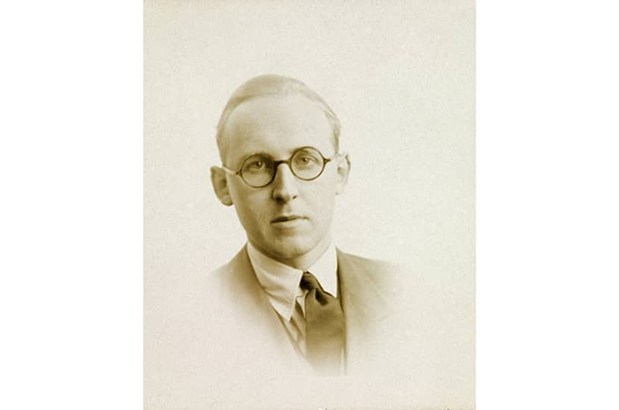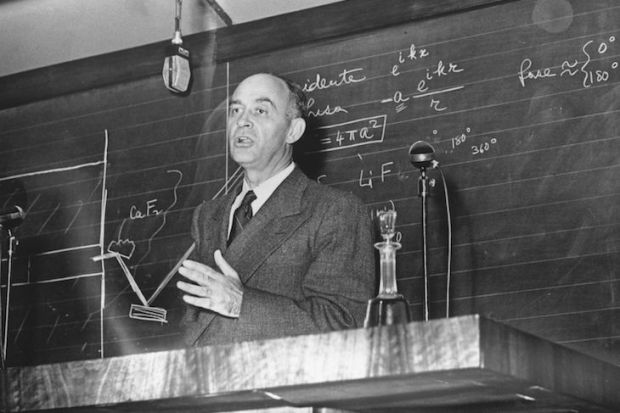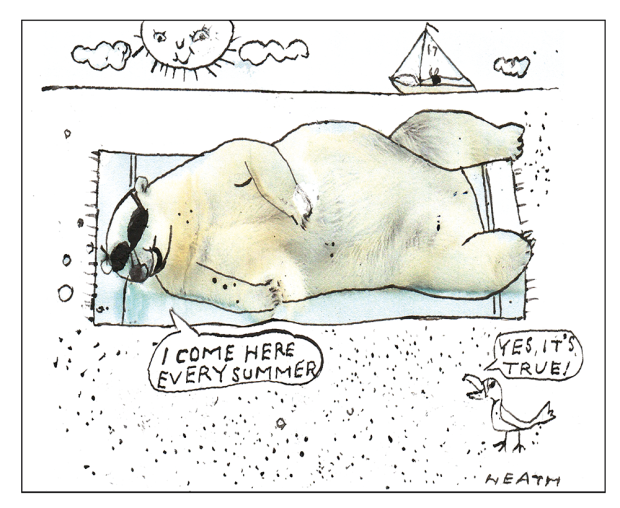The story, as it emerges, feels both familiar and inevitable. A bored 19-year-old student, on his university holidays in mid-century Metroland, joins the local tennis club, where he dismisses all the girls his age as wholesome ‘Carolines’ but falls for Mrs Susan Macleod, a spirited, sarcastic woman in her forties. Paul shocks the village by taking her for drives (both are soon barred from the tennis club) and then starts taking her to bed in her marital home.
Here he manages to become a familiar presence. Though Susan’s husband mocks Paul as her ‘fancy boy’, he also teaches him to do the crossword and only occasionally lashes out at him with peculiarly sudden moments of physical violence. Paul, drunk on love and seduced by his own and his lover’s charms, floats on a tide of happiness that precludes anxiety or introspection. ‘When I look back at my youth, I see it as a time of cock-vigour so insistent that it forbade examination of what such vigour was for.’
Immediately, this compelling narrative of happiness is delicately undermined by an equally compelling narrative of unhappiness. This feels both familiar and inevitable as well. Paul and Susan, we learn in the first narrative, use her money to escape to London, where they defy convention and their families, living openly as lovers. He starts training as a lawyer; she keeps house; his friends come to visit, even if hers stay away.
This becomes the period described in the second narrative, where Paul, in old age, has to return to memories less willingly recalled. Susan starts drinking more than she should and over the months or years develops into an unacknowledged alcoholic. Paul colludes with her out of loyalty to their love. The liberation from the old dogmas of his parents’ generation brings its own complexities, he tells us. ‘The sense of obligation became internalised. Love was a Duty in and of itself.’
As the relationship comes apart, our faith in Paul’s memory does as well. ‘Life is a cross section,’ he observes, ‘memory is a split down the grain.’ The title seems to owe something to Ford Madox Ford’s The Good Soldier, a novel that was to be called The Saddest Story. Julian Barnes, who is a great fan of Ford, has described The Good Soldier as proceeding, ‘both at phrase- level and in terms of plot and character, by moments of disorienting readjustment, some sly and secretive, others dazzlingly brazen’. Paul, asking if ‘all these retellings bring you closer to the truth of what happened?’, could be Ford’s Dowell, starting over and over again to tell the sad story that both he and the reader come to feel may be beyond his capacities to tell.
These are familiar techniques and themes for readers of Barnes as well as readers of Ford. As a flawed narrator unwilling to reveal the more sordid and possibly misremembered details of his life, Paul is in a lineage that stretches back to Geoffrey Braithwaite in Flaubert’s Parrot. Here, though, the form is tighter and the questions about love and about stories are all in the end questions about love stories.
‘Everyone has their love story,’ Susan tells Paul, warning him not to accept the middle-agedness of the middle-aged at face value. They too — whether it’s his suburban parents or Susan’s gin-soaked friend Joan — have their love story to look back on, and it’s ‘the only story’. Love stories are, we’ve come to understand by the end of Barnes’s novel, by their nature the saddest stories. This is because love has to end, and because though bad sex is worse than good sex, ‘sad sex is the saddest of all’.
Paul’s method of contemplating these truths while looking back over his life is, as in his youth, to try out grand statements and then to question them, either immediately or with hindsight. ‘Would you rather love the more, and suffer the more; or love the less, and suffer the less?’ the narrator asks us as the novel opens, suggesting that this is ‘the only real question’. Yet love, posited here as so easily understandable an absolute, turns out to be more relative and so the question itself may be flawed. Nothing, we quickly learn, can be taken for granted.
The effect of this mutability, more than in the tricksier world of Flaubert’s Parrot, more than in the more obviously destructive world of The Good Soldier, is to create a readerly disappointment that’s all the stronger for the speed with which it occurs. The prose, though often playful and always elegant, propels us forward, first into joy, and then into despair, and there is no escape from the central story as it becomes bleaker. This intense, taut, sad and often beautiful tale may well be Barnes’s best novel for some years.
Got something to add? Join the discussion and comment below.
You might disagree with half of it, but you’ll enjoy reading all of it. Try your first month for free, then just $2 a week for the remainder of your first year.













